Charles E W Bean, Diaries, AWM38 3DRL 606/116A/1 - September 1918 - Part 2
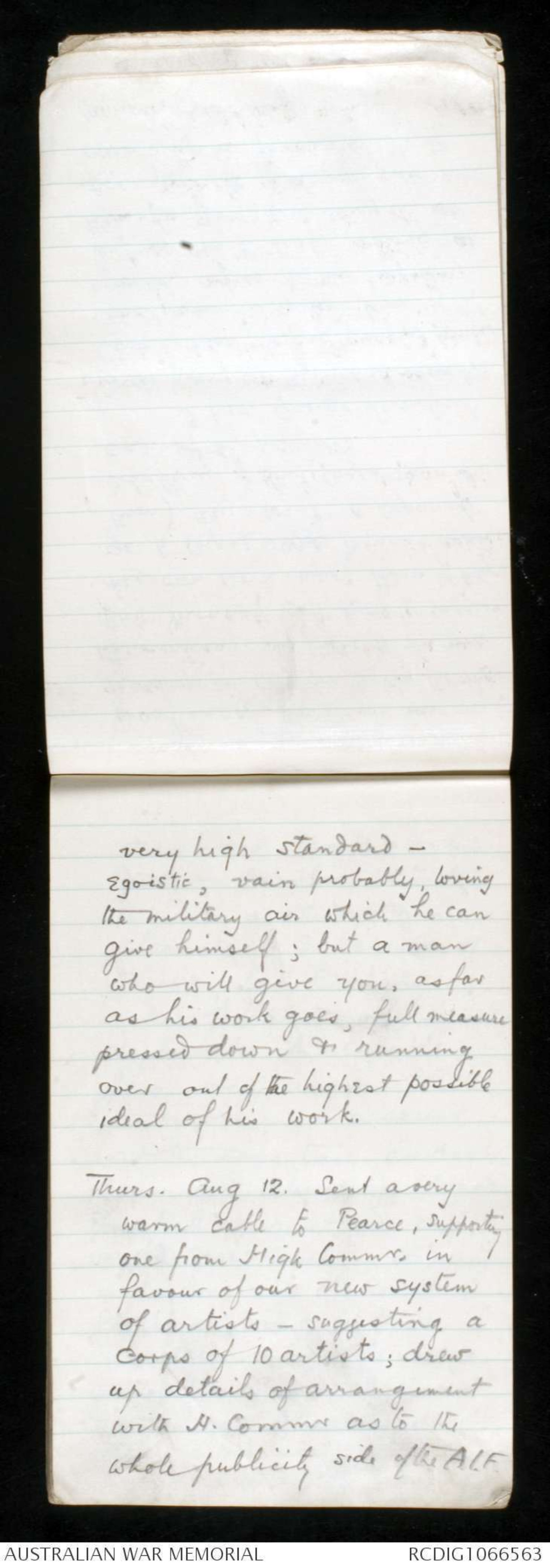
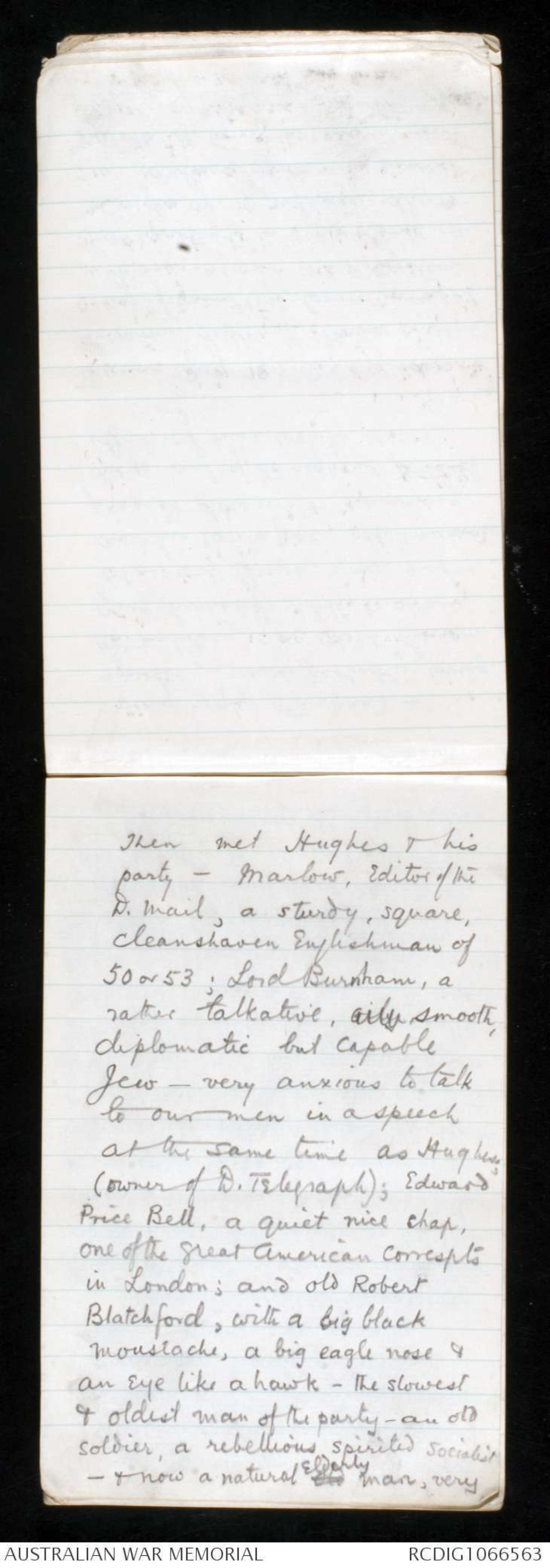
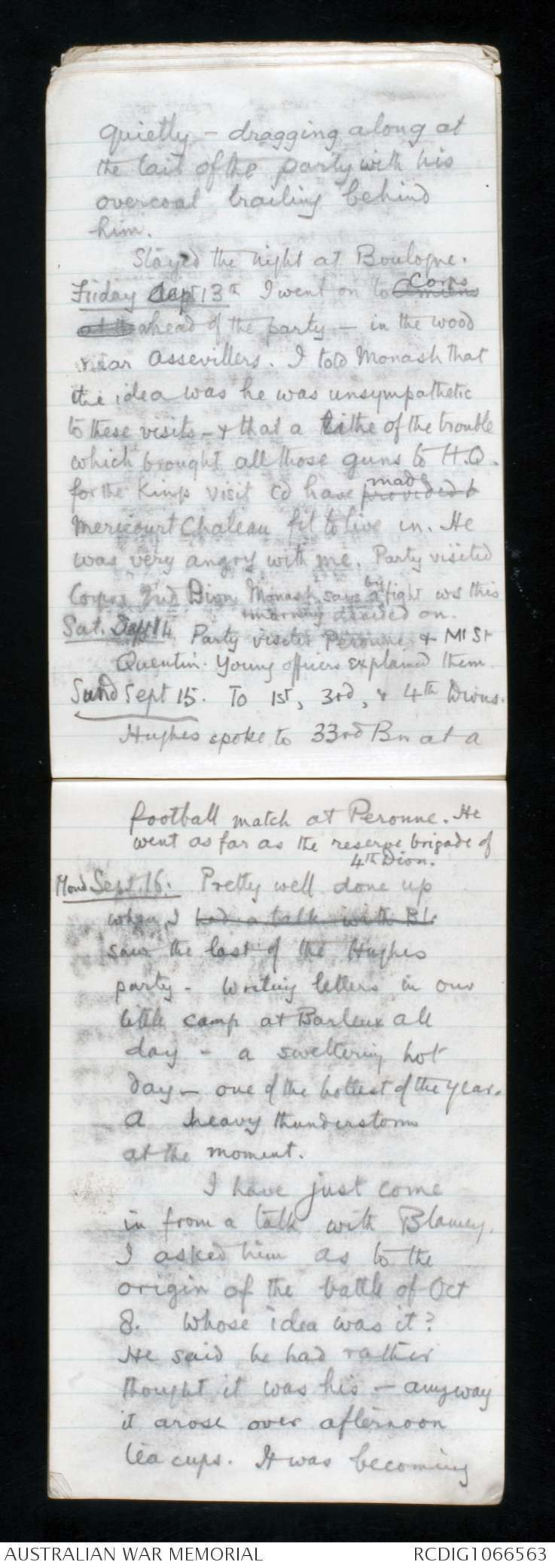
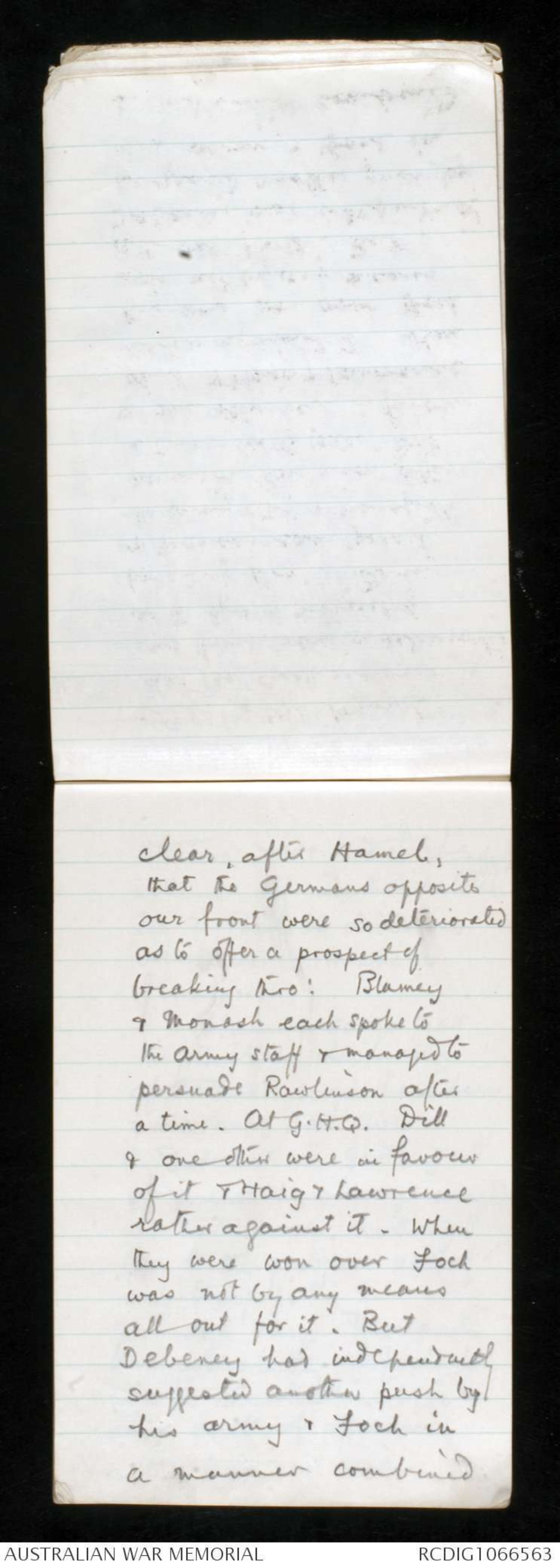
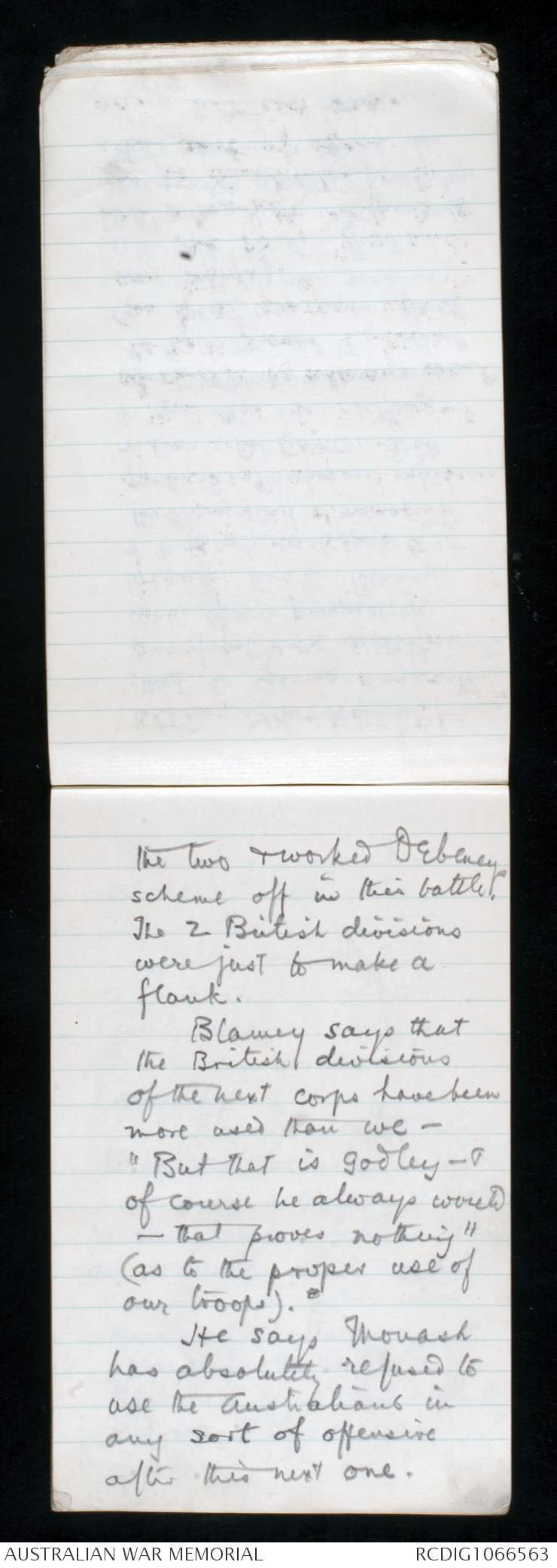
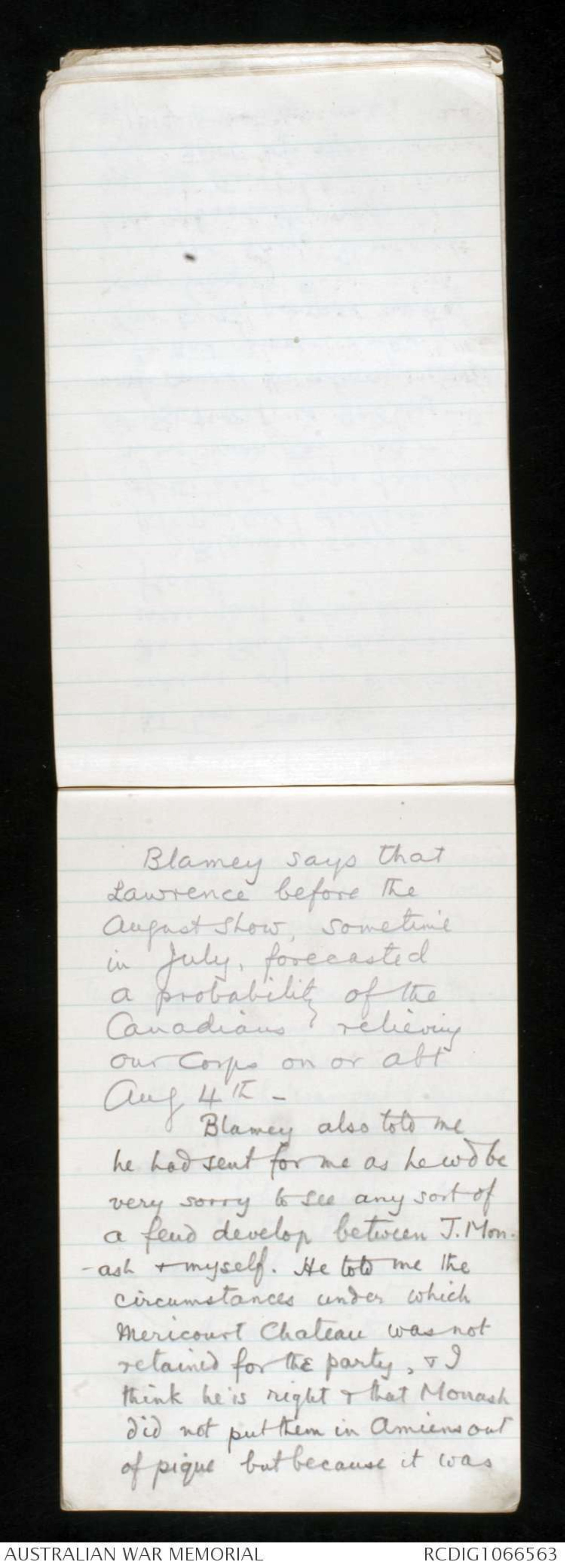
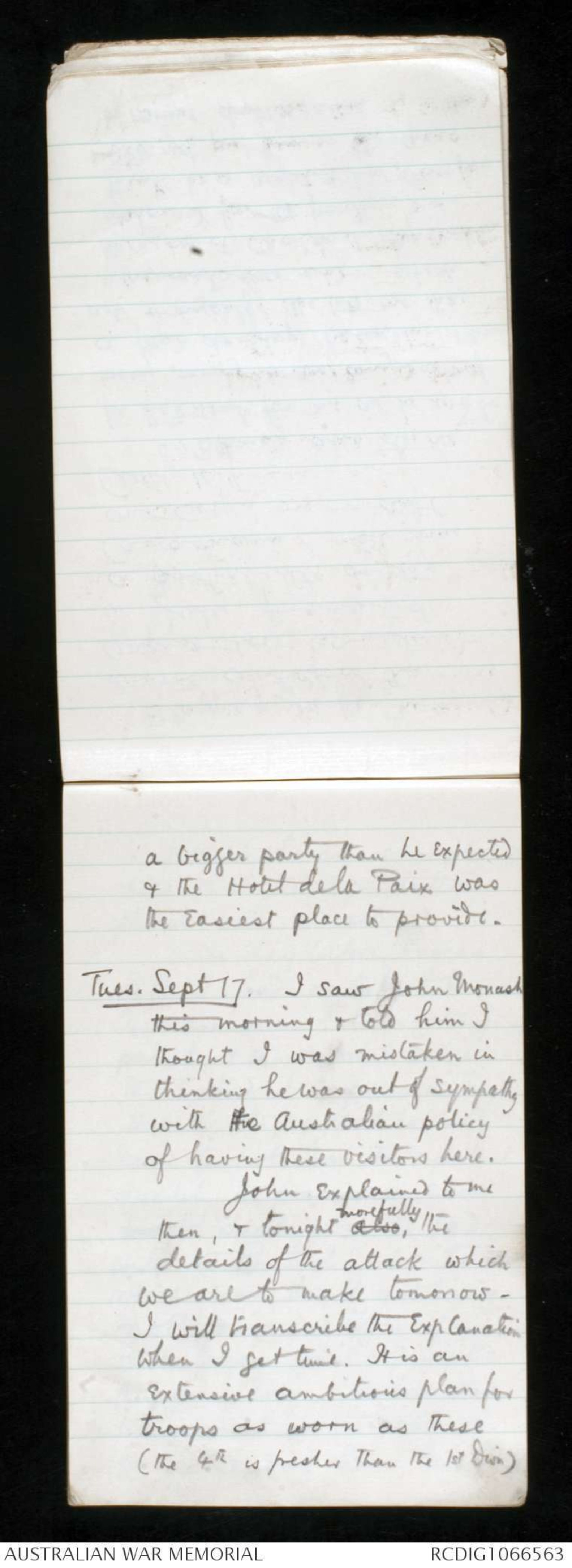
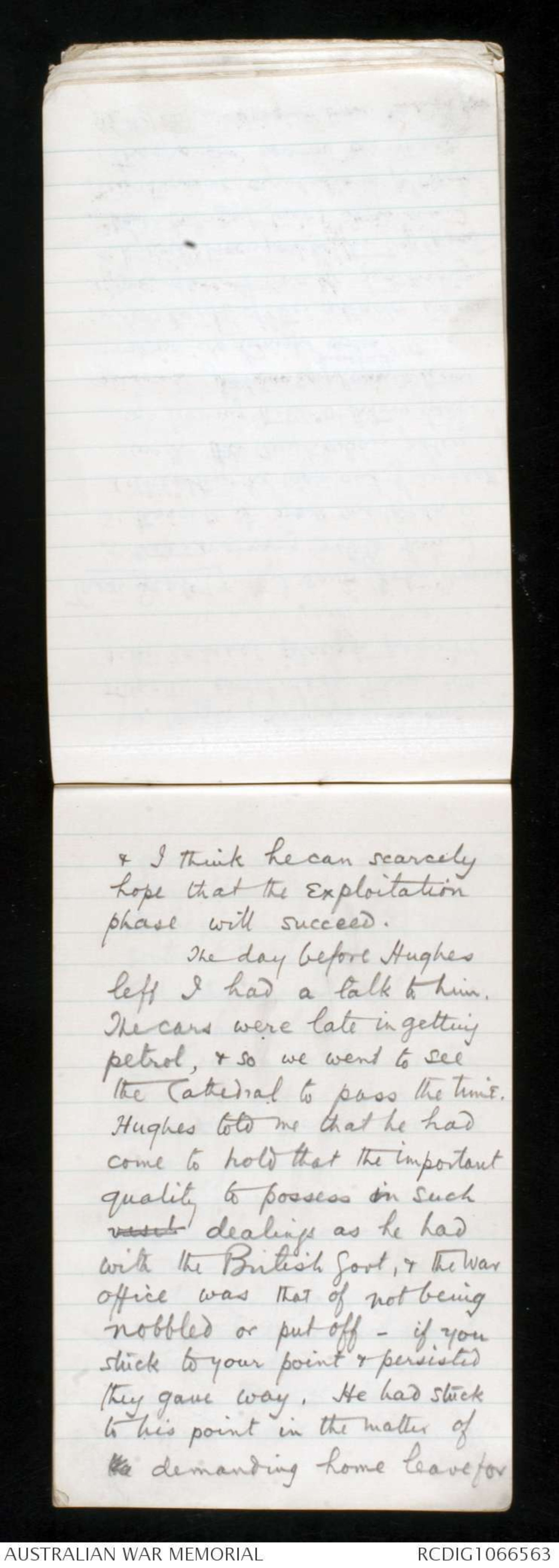
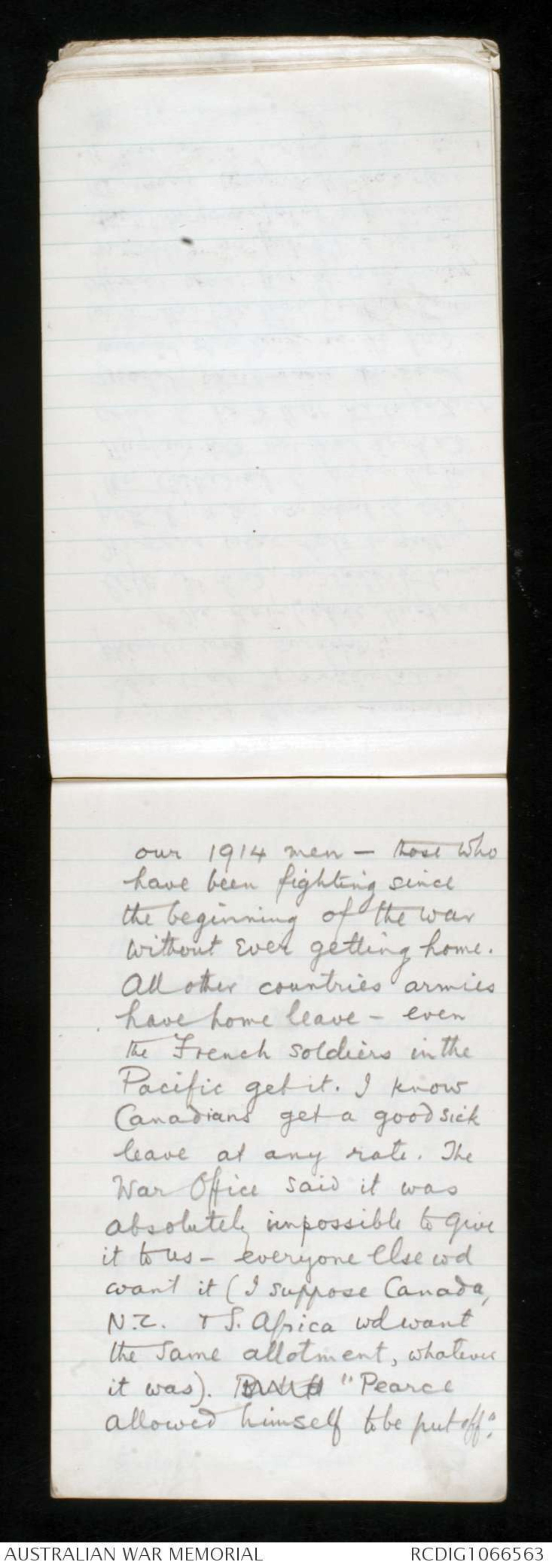
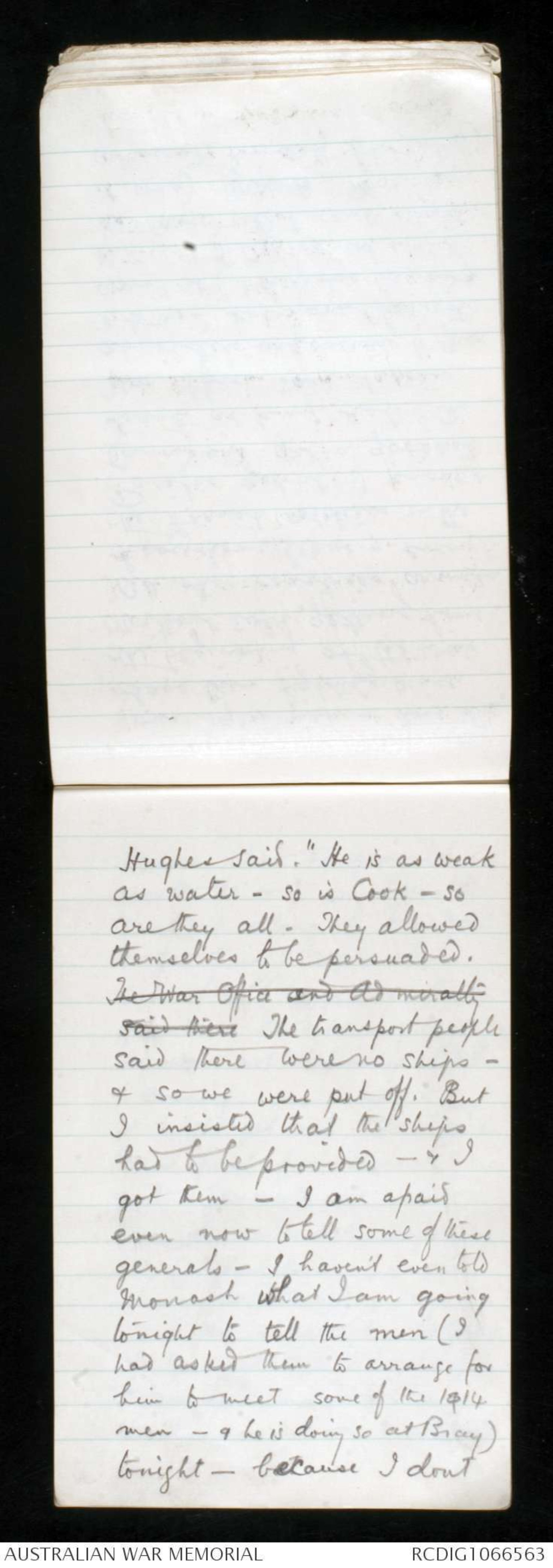
very high standard -
egoistic, vain probably, loving
the military air which he can
give himself; but a man
who will give you, as far
as his work goes, full measure
pressed down & running
over out of the highest possible
ideal of his work.
Thurs. Aug 12. Sent a very
warm cable to Pearce, supporting
one from High Commr, in
favour of our new system
of artists - suggesting a
corps of 10 artists; drew
up details of arrangement
with H. Commr as to the
whole publicity side of the A.I.F.
then met Hughes & his
party - Marlow, Editor of the
D. Mail, a sturdy, square,
cleanshaven Englishman of
50 or 53; Lord Burnham, a
rather talkative, xxx smooth,
diplomatic but capable
Jew - very anxious to talk
to our men in a speech
at the same time as Hughes,
(owner of D. Telegraph); Edward
Price Bell, a quiet nice chap,
one of the great American correspts
in London; and old Robert
Blatchford, with a big black
moustache, a big eagle nose &
an eye like a hawk - the slowest
& oldest man of the party - an old
soldier, a rebellious spirited socialist
- & now a natural old elderly man, very
quietly - dragging along at
the tail of the party with his
overcoat trailing behind
him.
Stayed the night at Boulogne.
Friday Sept 13th I went on to Amiens Corpsat the ahead of the party - in the wood
near Assevillers. I told Monash that
the idea was he was unsympathetic
to these visits - & that a tithe of the trouble
which brought all those guns to H.Q.
for the Kings visit cd have provided made
Mericourt Chateau fit to live in. He
was very angry with me. Party visited
Corps 2nd Divn Monash says a ^ big fight ws this
morning decided on.
Sat. Sept 14. Party visited Peronne & Mt St
Quentin. Young officers explained them.
Sund Sept 15. To 1st, 3rd, & 4th Divns.
Hughes spoke to 33rd Bn at a
football match at Peronne. He
went as far as the reserve brigade of
4th Divn.
Mon Sept 16. Pretty well done up
when I had a talk with BI
saw the last of the Hughes
party - Writing letters in our
little camp at Barleux all
day - a sweltering hot
day - one of the hottest of the year.
A heavy thunderstorm
at the moment.
I have just come
in from a talk with Blamey.
I asked him as to the
origin of the battle of Oct
8. Whose idea was it?
He said he had rather
thought it was his - anyway
it arose over afternoon
tea cups. It was becoming
clear, after Hamel,
that the Germans opposite
our front were so deteriorated
as to offer a prospect of
breaking thro:. Blamey
& Monash each spoke to
the Army staff & managed to
persuade Rawlinson after
a time. At G.H.Q. Dill
& one other were in favour
of it & Haig & Lawrence
rather against it. When
they were won over Foch
was not by any means
all out for it. But
Debeney had independently
suggested another push by
his army & Foch in
a manner combined
the two & worked Debeneys
scheme off in this battle.
The 2 British divisions
were just to make a
flank.
Blamey says that
the British divisions
of the next corps have been
more used than we -
"But that is Godley - &
of course he always would
- that proves nothing"
(as to the proper use of
our troops).
He says Monash
has absolutely refused to
use the Australians in
any sort of offensive
after this next one.
Blamey says that
Lawrence before the
August show, sometime
in July, forecasted
a probability of the
Canadians relieving
our Corps on or abt
Aug 4th -
Blamey also told me
he had sent for me as he wd be
very sorry to see any sort of
a feud develop between J. Monash
& myself. He told me the
circumstances under which
Mericourt Chateau was not
retained for the party, & I
think he is right & that Monash
did not put them in Amiens out
of pique but because it was
a bigger party than he expected
& the Hotel de la Paix was
the easiest place to provide.
Tues. Sept 17. I saw John Monash
this morning & told him I
thought I was mistaken in
thinking he was out of sympathy
with the Australian policy
of having these visitors here.
John explained to me
then, & tonight also more fully, the
details of the attack which
we are to make tomorrow -
I will transcribe the explanation
when I get time. It is an
extensive ambitious plan for
troops as worn as these
(the 4th is fresher than the 1st Divn)
& I think he can scarcely
hope that the exploitation
phase will succeed.
The day before Hughes
left I had a talk to him.
The cars were late in getting
petrol, & so we went to see
the Cathedral to pass the time.
Hughes told me that he had
come to hold that the important
quality to possess in suchvisit dealings as he had
with the British Govt, & the War
office was that of not being
nobbled or put off - if you
stuck to your point & persisted
they gave way. He had stuck
to his point in the matter ofth demanding home leave for
our 1914 men - those who
have been fighting since
the beginning of the war
without ever getting home.
All other countries armies
have home leave - even
the French soldiers in the
Pacific get it. I know
Canadians get a good sick
leave at any rate. The
War Office said it was
absolutely impossible to give
it to us - everyone else wd
want it (I suppose Canada,
N.Z. & S. Africa wd want
the same allotment, whatever
it was). But xx "Pearce
allowed himself to be put off",
Hughes said. "He is as weak
as water - so is Cook - so
are they all - They allowed
themselves to be persuaded.The War Office and Admiraltysaid there The transport people
said there were no ships -
& so we were put off. But
I insisted that the ships
had to be provided - & I
got them - I am afraid
even now to tell some of these
generals - I haven't even told
Monash what I am going
tonight to tell the men (I
had asked them to arrange for
him to meet some of the 1914
men - & he is doing so at Bray)
tonight - because I dont
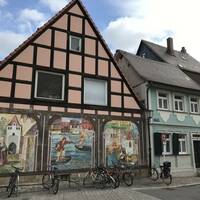 Robyn G
Robyn GThis transcription item is now locked to you for editing. To release the lock either Save your changes or Cancel.
This lock will be automatically released after 60 minutes of inactivity.